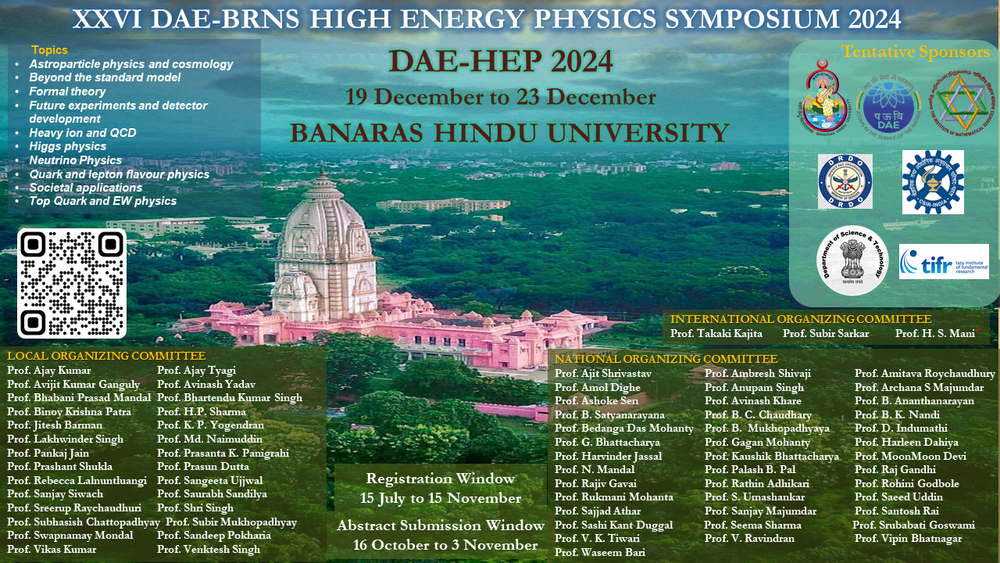Speaker
Description
Measurements of event-by-event mean transverse momentum ($\langle p_{\rm T} \rangle$) fluctuations are reported in terms of the integral correlator $\langle \Delta p_{\rm T} \Delta p_{\rm T}\rangle$ and skewness of the event-wise $\langle p_{\rm T} \rangle$ distribution in pp collisions at $\sqrt{s}=13$ TeV with the Monte Carlo event generators PYTHIA8 and HERWIG7. The final-state charged particles with transverse momentum ($p_{\rm T}$) and pseudo-rapidity ($\eta$) range $0.15 \leq p_{\rm T}\leq 2.0$ GeV/$c$ and $|\eta| \leq 0.8$ were considered for the investigations. The correlator $\langle \Delta p_{\rm T} \Delta p_{\rm T}\rangle$ is observed to follow distinct declining trends with the average charged particle multiplicity ($\langle N_{\rm ch} \rangle$) for the PYTHIA8 and HERWIG7 models. Furthermore, both models yield positive finite skewness in low-multiplicity events. The observables are additionally studied using the transverse spherocity estimator ($S_{\rm 0}$) to comprehend the relative contributions of hard scattering (jets) and soft multi-partonic interactions (MPI). The present comparative measurements using these models would provide a better understanding of the fluctuation dynamics and construct a crucial baseline to search for non-trivial fluctuations in heavy-ion collisions.
| Field of contribution | Phenomenology |
|---|

